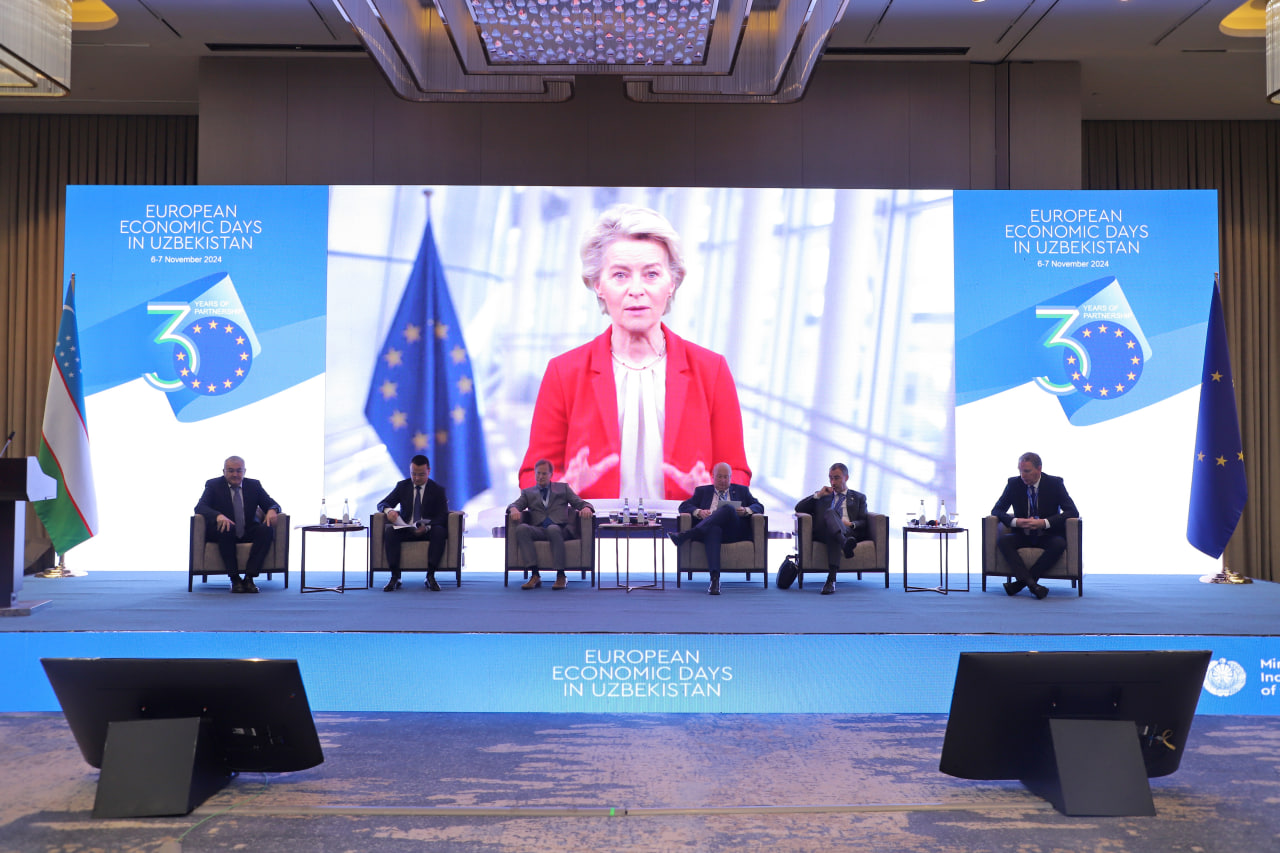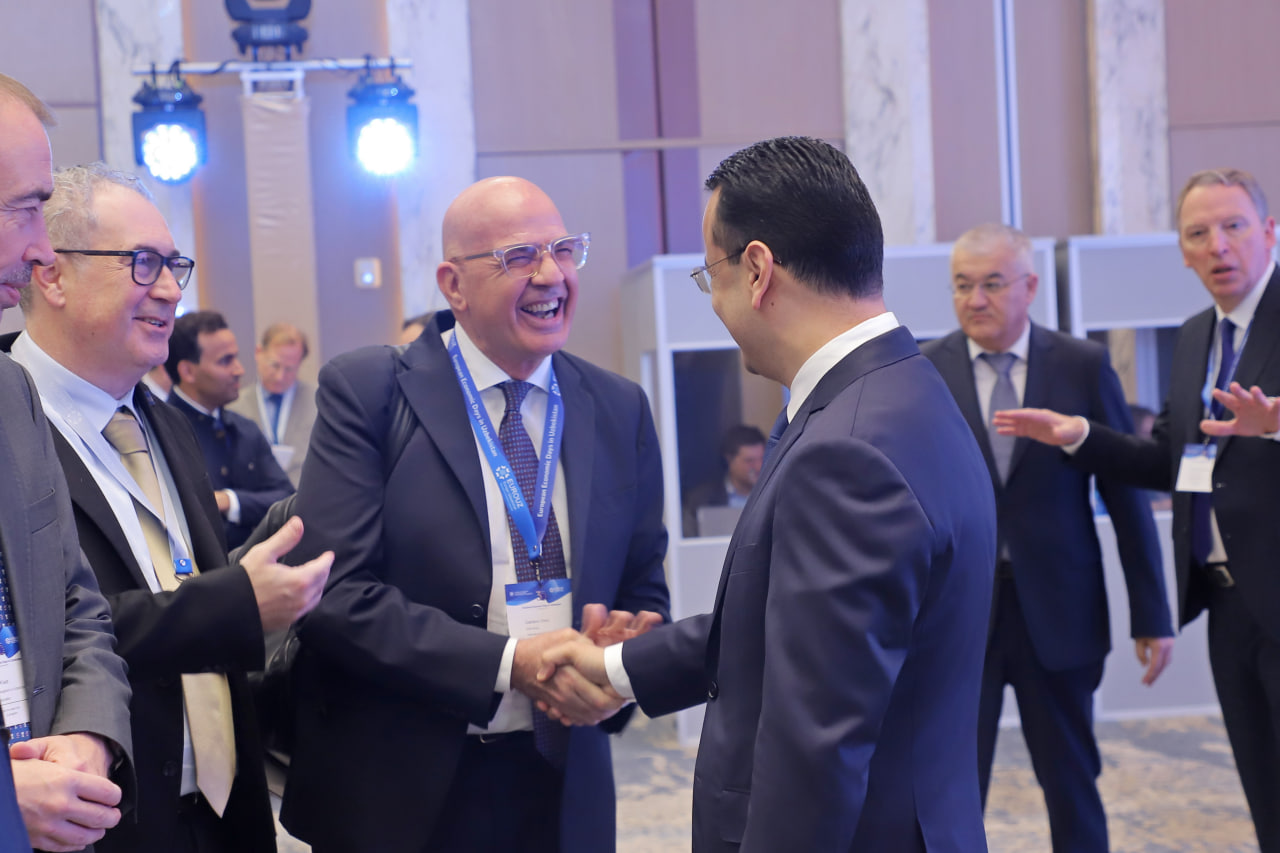Europe is ready to partner with Uzbekistan in a new chapter of its history, stated the President of the European Commission.
Europe is Ready to Become Uzbekistan's Partner in a New Chapter of Its History — President of the European Commission
On November 6, 2024, the President of the European Commission, Ursula von der Leyen, addressed participants of the business forum “European Economy Days in Uzbekistan” via video message. In her speech, she emphasized the significance of Uzbekistan as a historical hub of global trade and expressed Europe’s readiness to support the country in restoring its central role in global trade and investment flows.
“For centuries, Uzbekistan has been the 'beating heart' of global trade. European merchants traveled to Samarkand, Bukhara, and Khiva, returning with tales of your magnificent palaces, enchanting landscapes, and incredibly diverse culture,” noted von der Leyen.

Strengthening Trade Relations Between Europe and Uzbekistan
Von der Leyen highlighted that trade is one of the key aspects of current cooperation between Europe and Uzbekistan. Since 2021, Uzbek goods have gained access to the European market, significantly boosting exports, particularly in sectors such as textiles and metallurgy.
“Uzbekistan's exports have surged rapidly, and there is immense potential for even greater growth,” added the head of the European Commission, noting that Europe sees Uzbekistan as a reliable partner for developing long-term economic ties.
Investments in Uzbekistan's Infrastructure and Digital Connectivity
The European Union is supporting Uzbekistan in its aim to become more interconnected with the world, as evidenced by the “Global Gateways” initiative. According to Ursula von der Leyen, Europe, together with international partners, plans to invest up to 10 billion euros in the Trans-Caspian Corridor, which will connect Europe and Central Asia within 15 days.
“Uzbekistan is located at the crossroads of our continents and should be at the center of our global connections,” emphasized von der Leyen, highlighting the importance of infrastructure cooperation.
Europe is also working on expanding digital connectivity in Uzbekistan. Joint efforts aim to connect the country to the EU's satellite network to ensure high-quality digital communication even in the most remote regions.

Uzbekistan and Europe's Cooperation in Strategic Sectors
Von der Leyen also underscored the importance of strategic cooperation in critical minerals. In April of this year, Europe and Uzbekistan signed an agreement on mineral supply chains. She noted that the EU is interested not only in raw material extraction but also in establishing local production, which will create jobs for the Uzbek population and ensure high added value.
“We want to support the establishment of local production with jobs for local residents and added value to the highest standards,” stressed von der Leyen, adding that this is the best path to a sustainable supply chain.
Prospects for Further Cooperation Between Uzbekistan and Europe
Ursula von der Leyen expressed hope that the forum in Tashkent would serve as a platform for establishing new business contacts between European and Uzbek companies, leading to concrete agreements and new business opportunities.
“Very soon, we will sign a new Agreement on Enhanced Partnership and Cooperation, which will further increase investments and trade between Uzbekistan and Europe,” added the head of the European Commission.
The “Central Asia – EU” Summit in Samarkand
Ursula von der Leyen also announced the first-ever “Central Asia – EU” summit, which will be held in Samarkand next year. According to her, this summit will be a significant milestone in strengthening the partnership between the European Union and Central Asian countries.
“As we celebrate the 30th anniversary of the establishment of diplomatic relations between Uzbekistan and the EU, I am confident of one thing: the best days of our partnership are yet to come,” concluded von der Leyen, wishing the forum participants productive work.